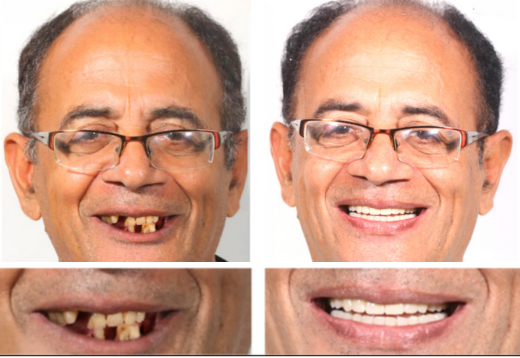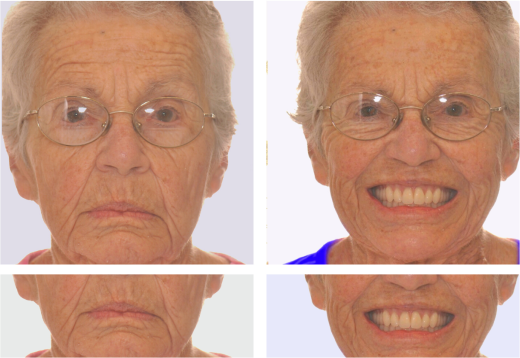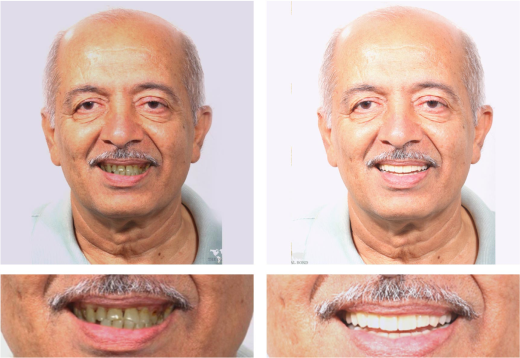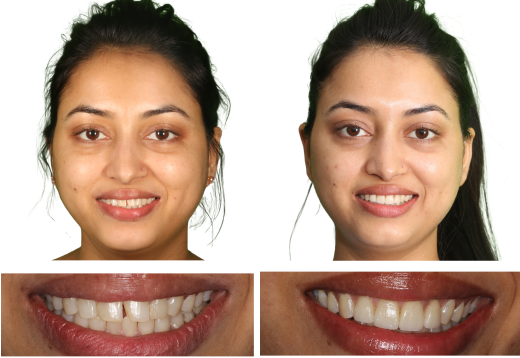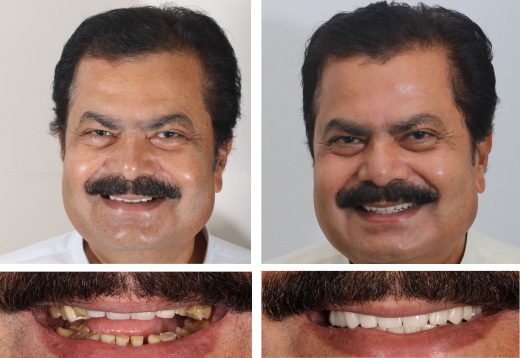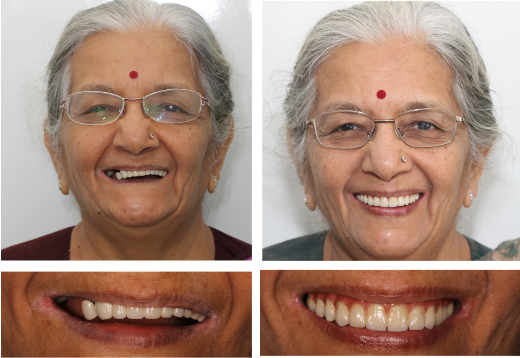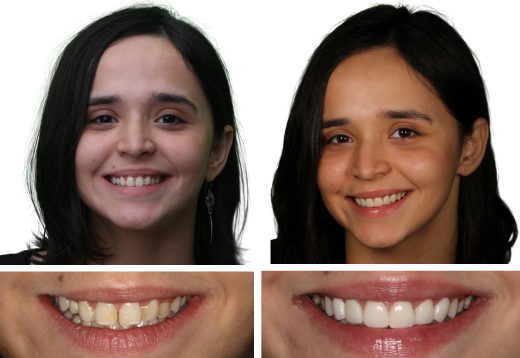
Temporomandibular Joint
Disorder Management
Call Now
Temporomandibular Joint Disorder Management
Your temporomandibular joint is a hinge that connects your jaw to the temporal bones of your skull, which are in front of each ear.
It lets you move your jaw up and down and side to side, so you can talk, chew, and yawn.
TMD often causes severe pain and discomfort. It can be temporary or last many years. It might affect one or both sides of your face.
At The Dental Bond, our globally trained specialists, will first perform a thorough examination of the neck and jaw and potentially order imaging tests to first make or confirm a diagnosis. Usually there is an underlying cause which triggers the pain and management of TMD starts with treating the cause of the pain.
Based on the findings of the examination and imaging tests, we will talk about the best treatment option to fix this problem. Our treatment for TMJ is typically conservative yet very effective and we limit the use of medication or surgery as much as possible.
What are the symptoms of TMD
Temporomandibular joint (TMJ) disorders may involve a number of structures—muscles, cartilage, joint bone, joining fluid, nerves, teeth and blood vessels. Symptoms can be quite varied and include jaw pain, ear pain, limited mouth opening, clicking sounds, difficulty in opening and closing, pain while chewing, radiating pain from ear to cheek region, deviation of lower jaw while closing mouth, difficulty in biting and chewing, pain while yawning wide, chronic pain in other parts of the face without an obvious cause, locking of the joint in open or closed position. If you are experiencing one or more of these symptoms it is likely you are experiencing a TMJ disorder.


How do we treat it
The first approach to treatment at The Dental Bond is usually conservative and focusses on finding the underlying cause of the pain. Once correctly diagnosed our specialist will guide you with one or more of the following methods to alleviate your pain.
Self-care methods and Physiotherapy- focussed on strengthening weak musculature around the TMJ joint, with hot/cold compresses and targeted jaw muscle exercises.
Prescription Medication- like oral medication or intramuscular injections for muscular spasms.
Laser Biomodulation- targeted laser therapy for TMJ pain.
Dental treatments- like use of prosthetic oral devices for correcting joint disc displacement disorders. Oral devices like mouthguards or treatments for opening collapsed bites due to grinding habits or bite correction therapy with orthodontic treatments, Aligner therapy or full mouth rehabilitations. These treatments focus on occlusal equilibration and restore function as well.
Surgical treatments include procedures like Arthrocentesis, Arthroscopy and Arthroplasty or total joint replacement and facial reconstruction but most often these are not needed if the underlying cause is treated with the above non surgical options.
Why The Dental Bond for TMJ disorder
TMJ pain is a condition that needs a comprehensive approach and The Dental Bond is one of the best clinics in Mumbai that can provide it. We work as a team of 7 highly skilled specialists and every aspect of each case is treated by the dentist you specializes in and has expertise in that area. We have an in-house CBCT machine that takes 3D scans for quick and prompt diagnosis. You can be assured that we will deliver the highest standards of care with compassion and with our team and the advanced technology at the centre you will get the best possible care without ever having to leave the clinic. Our team has taken every step to keep our facilities safe for you to continue your care as well as feel comfortable.
If you are experiencing any of the symptoms of TMJ and need a solution to relieve your pain, book your appointment with us at The Dental Bond and get all the answers you need at one of the best clinics in Mumbai for Temporomandibular Joint Disorders.
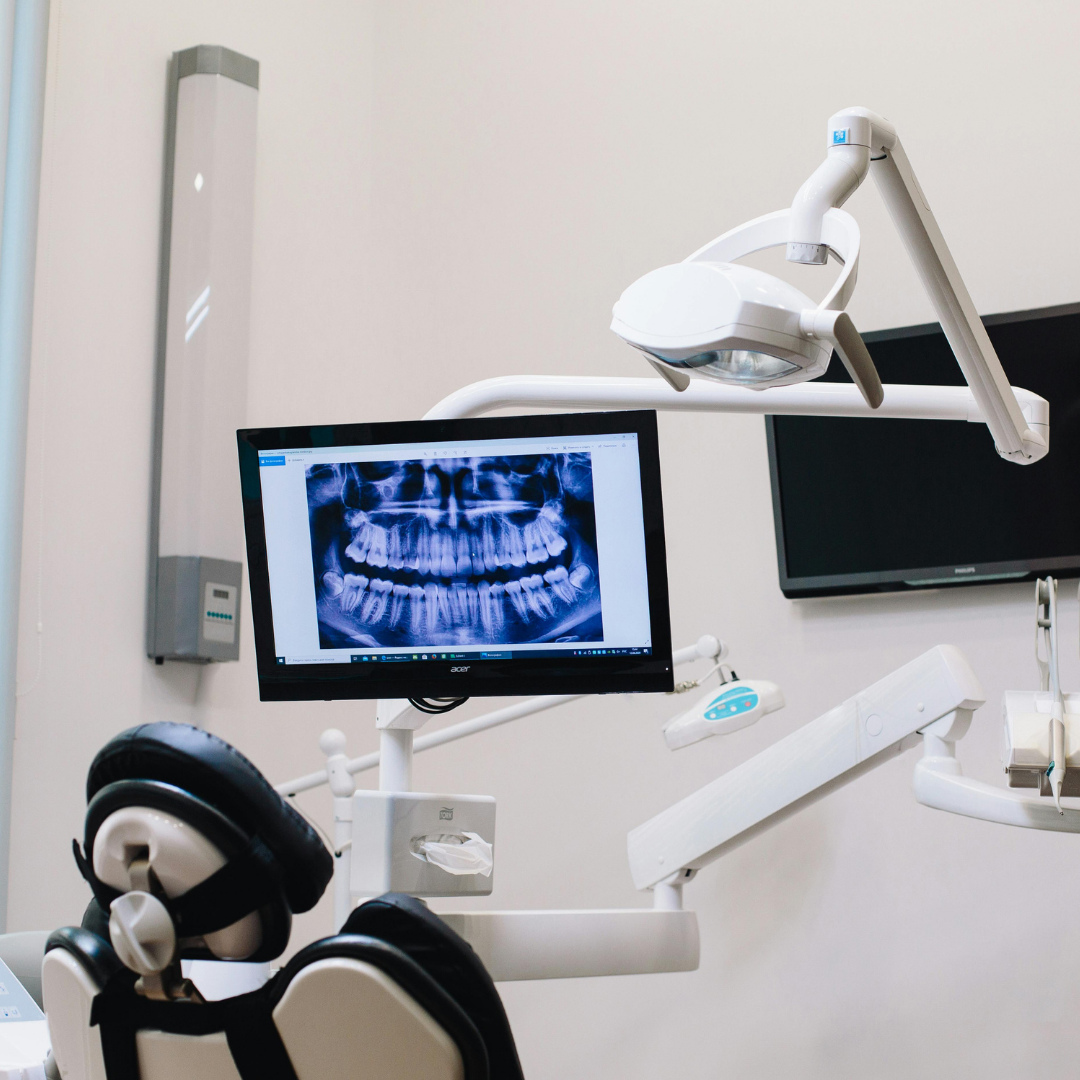
Before & After
Case Studies
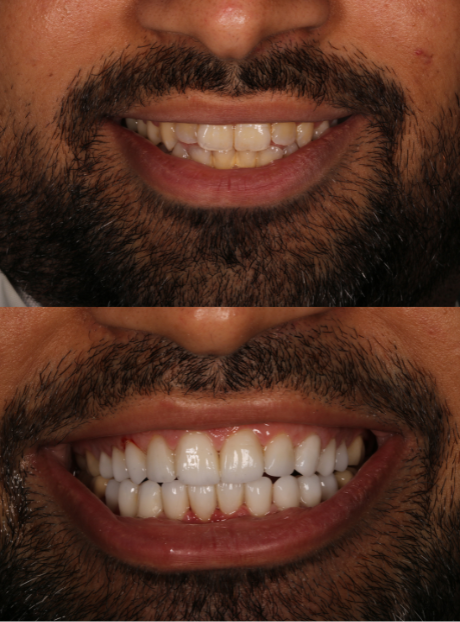
Rahil came to The Dental Bond for periodontic treatment, struggling with gum issues and blood-stained teeth. With expert care and precision, specialists treated his gums, restoring their health and appearance. The procedure not only improved his oral health but also gave him a fresher, more confident smile.

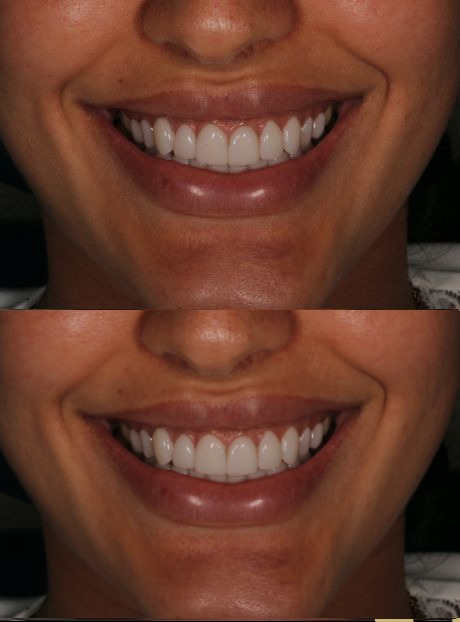
Julya, one of our international patients, was unhappy with her smile when she first arrived. After meeting with Dr. Husain, she felt confident that a Smile Makeover would leave her with a stunning smile she could proudly show off.

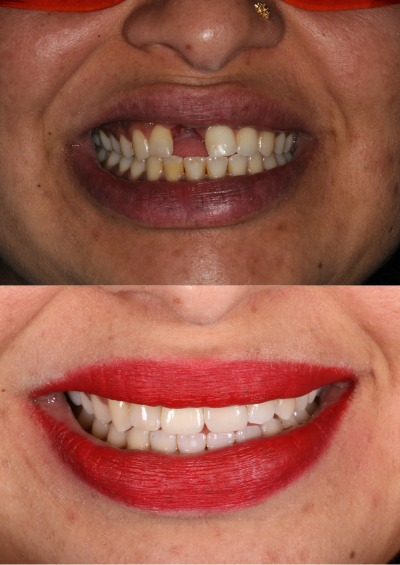
Niharika lost her front tooth due to an injury, leading to an infection and bone loss. Seeking a natural smile, she visited The Dental Bond, where specialists performed implant and bone graft surgeries simultaneously. She received a temporary tooth the same day, boosting her confidence, which was later replaced with a full ceramic cap.

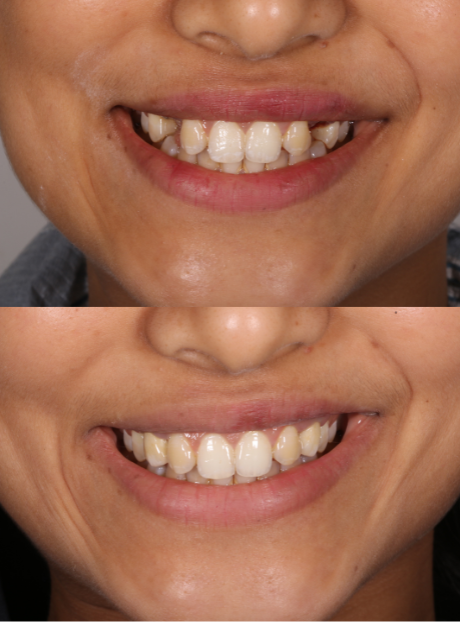
One of our youngest patient Aaliyah came in with a very rare trouble. She did not have her two permanent teeth in the front. After meeting our specialist dentist Dr. Husain, she was convinced that she would be walking out with a smile to flaunt.

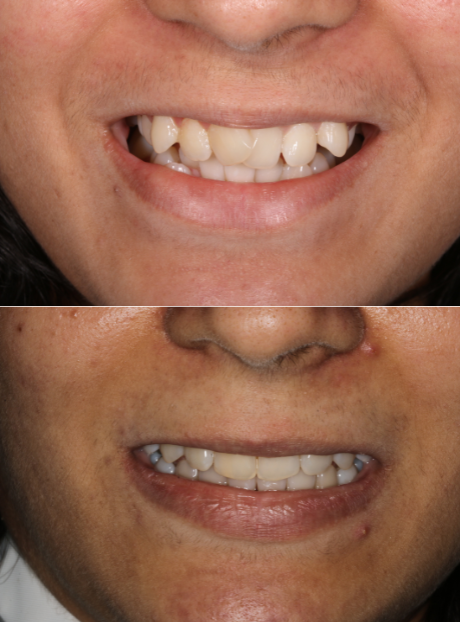
Akansha Potdar came to The Dental Bond looking to achieve a perfectly aligned smile. After consulting with our orthodontic experts, she began her journey with teeth alignment treatment. The results have been transformative, giving Akansha a beautifully aligned smile and a boost of confidence she carries everywhere!

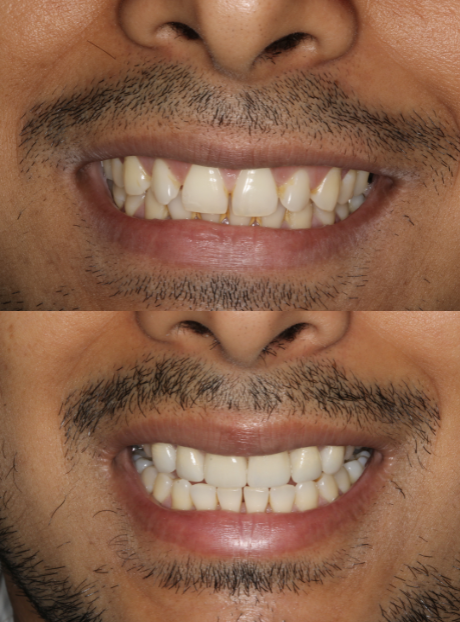
Anurag, one of our valued patients, came to The Dental Bond looking to enhance his smile. After a detailed consultation with our experts, he opted for a Smile Makeover with veneers. The transformation was remarkable, leaving Anurag with a radiant, confident smile he’s proud to share with the world!

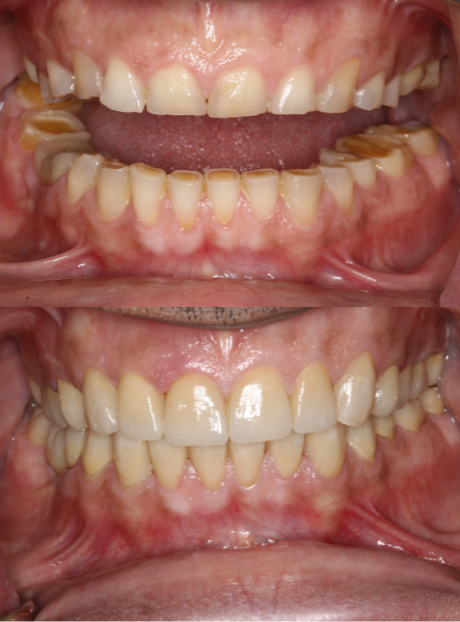
Vivek Pathak visited The Dental Bond seeking a comprehensive solution to restore his smile and oral health. After a thorough consultation, he underwent a Tooth-Supported Full Mouth Reconstruction tailored to his needs. The results were life-changing, giving Vivek a beautifully restored smile and renewed confidence!


Julya, one of our international patients, was unhappy with her smile when she first arrived. After meeting with Dr. Husain, she felt confident that a Smile Makeover would leave her with a stunning smile she could proudly show off.

What people are talking about us
Our reputation for dentistry excellence extends beyond India to the entire world. But don't just take our word for it — read our reviews.
- V
-
Veronica Barreto
-
I recently got my treatment done from The Dental Bond, I am very happy with my treatment, they have done fantastic job. I didn't feel any pain while my treatment was going on. They are very punctual with timing, I want to thank Dr Husain And team for the wonderful job.
- B
-
Bhaktee Modgil
-
Such a knowledgeable and skilled set of doctors! Trust me you’re in good hands. I’ve gotten multiple fillings, a wisdom tooth extraction & even a root canal here! I’ve never gone to another dentist since I’ve found The Dental Bond. Highly recommended. I have to give a special mention to the brilliant level of comfort and service provided to each patient!
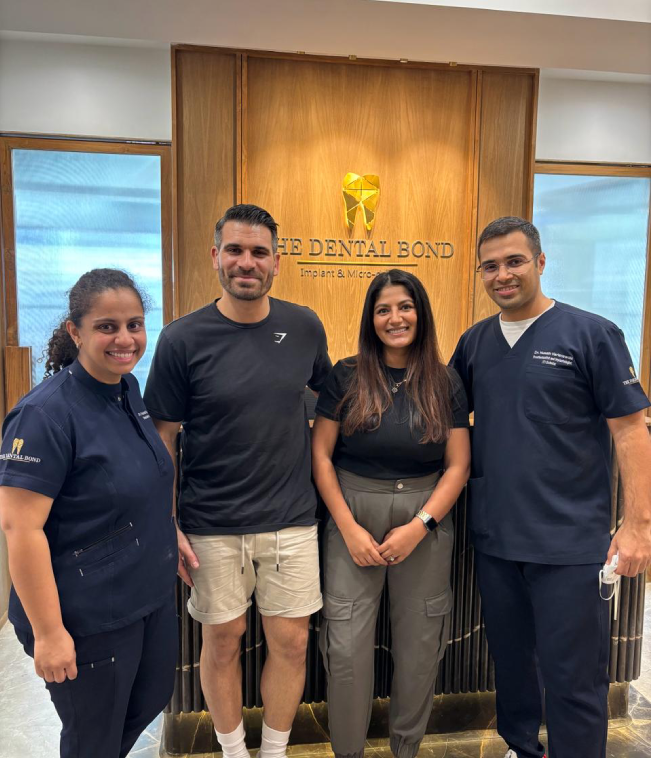
Book an Appointment
Frequently asked questions
TMJ dysfunction, or temporomandibular joint disorder, refers to a condition that affects the jaw joint and the muscles controlling jaw movement.. Dysfunction in the joint can cause pain, discomfort, and difficulty with jaw movement.
Common symptoms of TMJ dysfunction include:
- Jaw pain or tenderness
- Difficulty or pain when opening or closing the mouth
- Clicking, popping, or grating sounds when moving the jaw
- Headaches or migraines
- Ear pain or ringing in the ears (tinnitus)
- Neck and shoulder pain
- Locking of the jaw
- Facial pain or discomfort
If you're experiencing any of these symptoms, it's important to consult with our specialists at The Dental Bond for an accurate diagnosis and treatment plan.
TMJ dysfunction can be caused by a variety of factors, including:
- Jaw injury or trauma (e.g., from an accident or blow to the face)
- Teeth grinding or clenching (often related to stress or sleep disorders)
- Arthritis or other inflammatory conditions
- Misalignment of the teeth or bite (malocclusion)
- Poor posture or stress
- Habitual behaviors such as chewing on pens or nail-biting
To diagnose TMJ dysfunction, one of our specialists will conduct a thorough examination, review your medical history, and ask about your symptoms. Diagnostic tools, such as X-rays, MRI, or CT scans, may also be used to assess the condition of the jaw joint and surrounding structures.
Treatment for TMJ dysfunction depends on the severity and underlying cause of the condition. Common treatments include:
- Lifestyle changes
- Mouthguards or splints
- Physical therapy
- Medications
- Cold or heat therapy
- Various types of Dental treatments
- Botox injections
In rare cases, surgical intervention may be recommended if other treatments are ineffective.
Yes, stress is one of the most common contributors to TMJ dysfunction. It can lead to teeth grinding or jaw clenching, both of which put pressure on the jaw joints and muscles, causing pain and discomfort. Managing stress through relaxation techniques, exercise, and other stress-relieving activities can be an important part of TMJ treatment.
While some factors, like injury or genetics, may be unavoidable, there are steps you can take to prevent TMJ dysfunction:
- Avoid clenching or grinding your teeth, especially at night (using a night guard can help)
- Practice good posture to reduce strain on your jaw
- Manage stress through relaxation techniques or counseling
- Avoid excessive chewing (e.g., chewing gum, biting on hard objects)
- Seek prompt treatment if you notice any early signs of jaw pain or discomfort
While TMJ dysfunction is typically not life-threatening, it can significantly affect your quality of life. The pain and discomfort associated with TMJ can interfere with eating, speaking, and daily activities. Early diagnosis and treatment at The Dental Bond can help manage symptoms and prevent the condition from worsening.
The length of treatment for TMJ dysfunction varies depending on the severity of the condition and the chosen treatment plan. Some patients experience relief after a few weeks of conservative treatments such as physical therapy or a night guard, while others may require ongoing care. Our specialist will develop a personalized treatment plan and timeline based on your individual needs.
Maintaining good oral health as you age involves:
- Brushing twice a day with fluoride toothpaste
- Flossing daily to remove plaque from between the teeth
- Drinking plenty of water to keep your mouth hydrated
- Eating a balanced diet and avoiding sugary foods
- Quitting smoking, as it can contribute to gum disease and oral cancer
- Visiting The Dental Bond regularly for check-ups and professional cleanings
Yes, TMJ dysfunction can lead to additional oral health issues, such as:
- Teeth grinding (bruxism), which can cause wear on teeth
- Misalignment of the bite, which can lead to further discomfort or dental issues
- Increased risk of tooth sensitivity and fractures due to excessive force on the teeth
